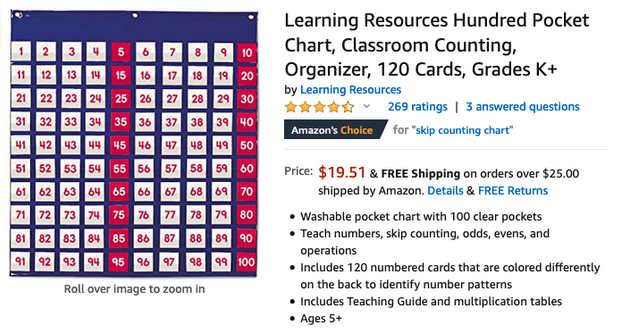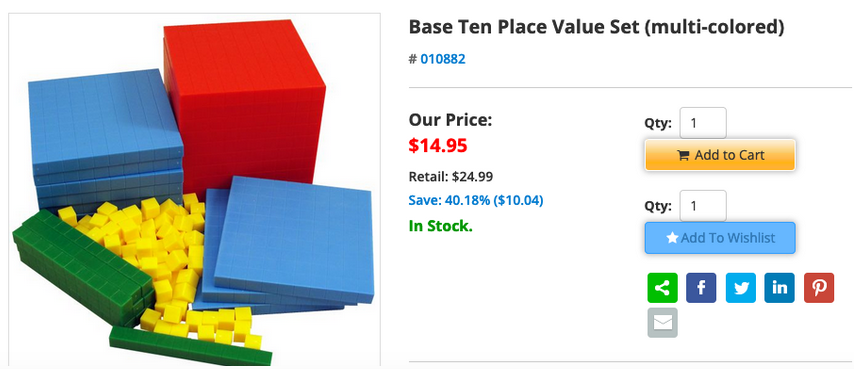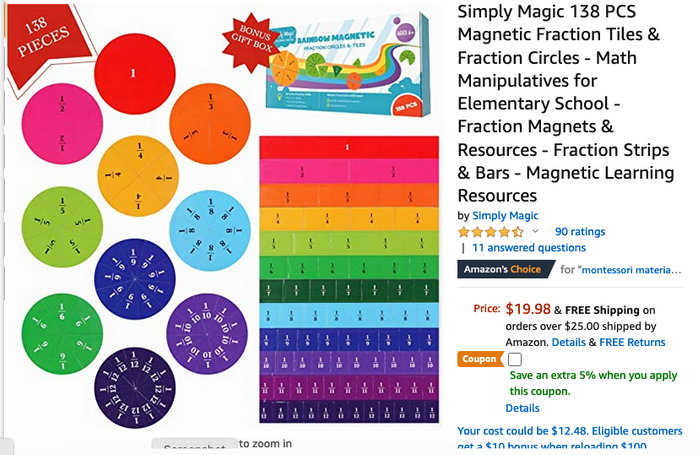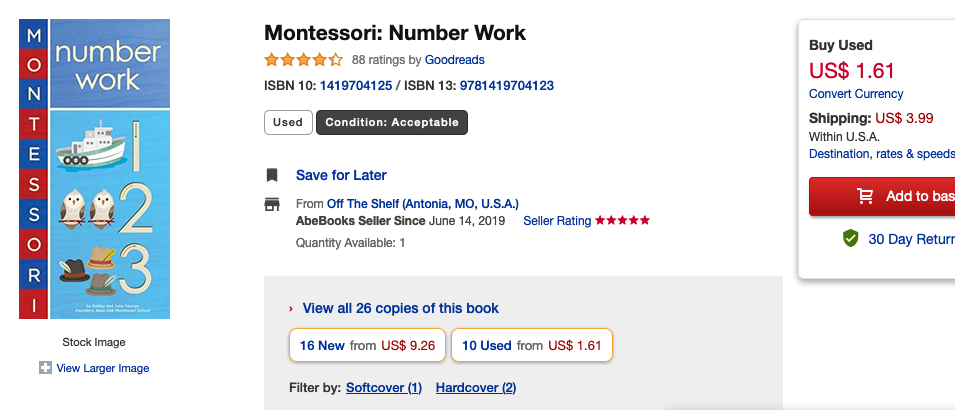Top 3 Math Toys
I have a lot of educational toys in my house. I have this problem: I can’t just buy toys for my kids. I have to buy them something that will actually help them in their lives*. So when I buy things I like to buy teacher things.
Here are the three toys that I think have made the biggest impact on my children’s math understanding. I don’t have affiliate links set up so buy whatever you want.
The kids really need to be so familiar with base 10. This chart is like water. I can’t explain why this so foundational, it’s like fish trying to explain why water is important. They need a mental model in their head of numbers. There are so many patterns that you see in this chart. Like, which columns have twos in them? Which columns have 0s in them? What does it look like when you flip white, white, red? What happens when you start with 0 isntead of 1?

These are also water. It’s another model that explains why you “carry the one” or “borrow.” I like to have the kids buy and sell things from each other using these as currency. They need to come to trust that there are ten in every stick. And then they need to exchange a stick for 10 units if they don’t need the whole stick. Or if they have too many units and they don’t want to count so many each time, they can trade it for a nice stick. My set doesn’t have the thousand block, but Austin just asked me for one yesterday.

I hear a lot of comments that people who hate math got stuck on fractions. And because they didn’t know fractions they couldn’t do algebra, and then they really couldn’t do calculus. These toys should help that problem.
The number written on the pie piece is how many pieces there should be. Halfs and fourths fit together. This makes fractions intuitive.

Don’t be cranky about how your children use the toys. Except breaking or losing them, there’s no wrong way. They internalize the concepts with every blueberry pie they create out of foam magnets and every tower they build with tiny cubes. Classrooms probably need to be cranky because there’s so many kids and limited time, but your house doesn’t have that constraint.
I keep these up high, and occaisionally pull them out. When a child has a problem with a math puzzle I give them the math toy and it helps.
*assuming that academic success will help them in their lives. I’m not positive this is true, and until I figure it out I’m going to keep writing this post and buying my children math toys.
Edit: I have to add this book.

Gotta memorize those counting words. The numbers are raised and textured, so the child’s hand starts tracing the pattern. As much as I hate memorization and algorithms, you NEED to start writing down math problems at about fourth grade, or your brain explodes. (And teachers make you start from the very beginning, which I probably didn’t do enough of with my children. I focused on mental math. Which helps, but it’s not everything.)


